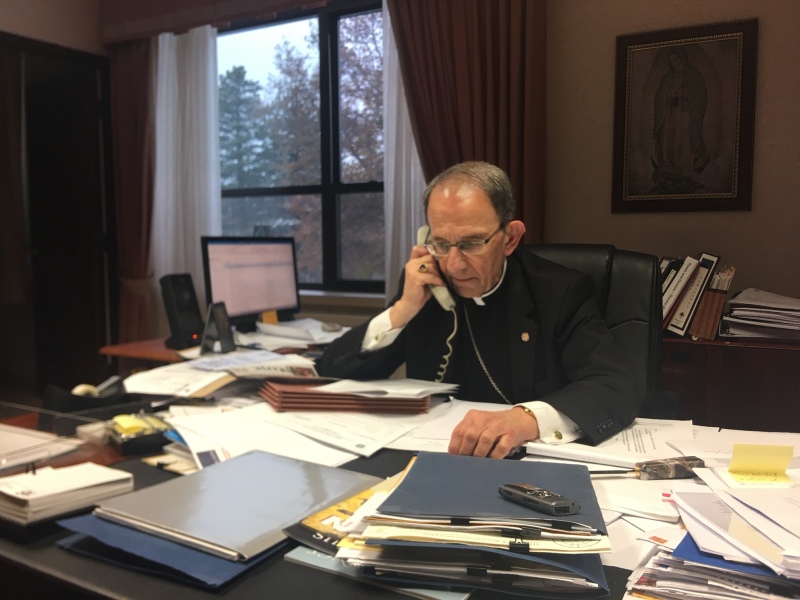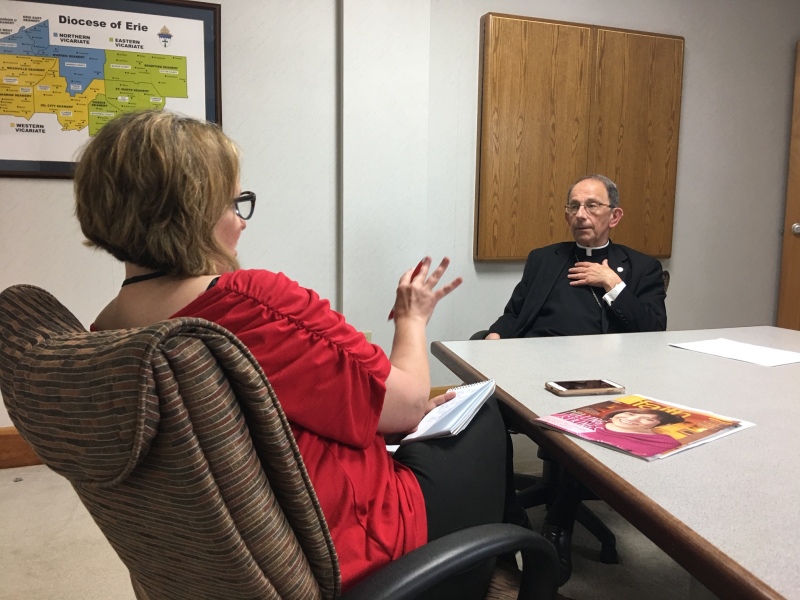
PLANNING FOR THE FUTURE: A VISION FOR 2020 AND BEYOND
Anne-Marie Welsh
02/24/2020

Erie. Photo by Anne-Marie Welsh
Halfway through his 14 years shepherding the Diocese of Erie, Bishop Lawrence Persico asked senior administrators to assist him with defining and shaping the priorities that might be addressed throughout the remainder of his tenure. The January gathering was a natural outgrowth of the pastoral planning initiative he began soon after arriving in Erie.
“This seemed like a good moment to stop and take stock,” Bishop Persico said, as he offered a brief reflection to open the meeting. What follows is a summary of his remarks, although he emphasized that rather than imposing his own thoughts, his top priority was to listen to others.
"I think it’s a good exercise for each of us to hear from each other,” he said. “As we verbalize our thoughts, I expect common themes will emerge that will help us envision our future.”
Bishop Persico noted that the need for pastoral planning will not end, and pointed to recent announcements from schools and parishes that have made decisions about their futures on the local level in recent months. He also provided a brief synopsis of the five areas that had been addressed through the pastoral plan first explored in 2013. Those initiatives include:
1. A plan for Catholic schools as outlined in Building in Truth and Love, a comprehensive but evolving plan for schools introduced in 2015.
2. Parish restructuring introduced after a preliminary plan was refined by feedback from parishioners across the diocese. Since the plan was first implemented in February 2017, several parishes have worked with facilitators to make additional decisions about their futures.
3. A new emphasis has been placed on vocations to the priesthood and religious life, with a full-time director of vocations and several new and ongoing events including Andrew and Miriam dinners and Quo Vadis, a week-long summer program for those considering the priesthood.
4. The implementation of a restructured effort in faith formation emphasizing lifelong learning in parishes. Under the direction of Deacon Steve Washek, executive director, a new team of four is now actively engaging with and serving parishes and parish ministers dedicated to a wide array of initiatives in this area.
5. And finally, organizational restructuring of diocesan administrative offices has occurred naturally as each of the initiatives was introduced.
“Overall I’ve been pleased with the process,” Bishop Persico said. “Change is always a challenge, but our goal was to create a process that was pastoral, and we were committed to involving a variety of stakeholders along the way.”

at St. Mark Catholic Center. Photo by Anne-Marie Welsh
The bishop also acknowledged that attention to the impact of abuse within the church would continue to be a priority for the rest of his time as bishop, and likely beyond. In addition to bringing the work of the compensation fund to a close, he said he continues to meet with victims. He also noted that it is unclear what the federal grand jury has in mind or what kind of timeline might be involved for that effort.
The meeting included a roundtable discussion during which administrators shared some of the key hopes in their areas of responsibility for the next few years, as well as challenges and constraints they are encountering. As those are summarized, Bishop Persico will meet with other consultative groups as well as convene the group again to review common themes and brainstorm potential initiatives before deciding which ideas to introduce on a broader level.
-
